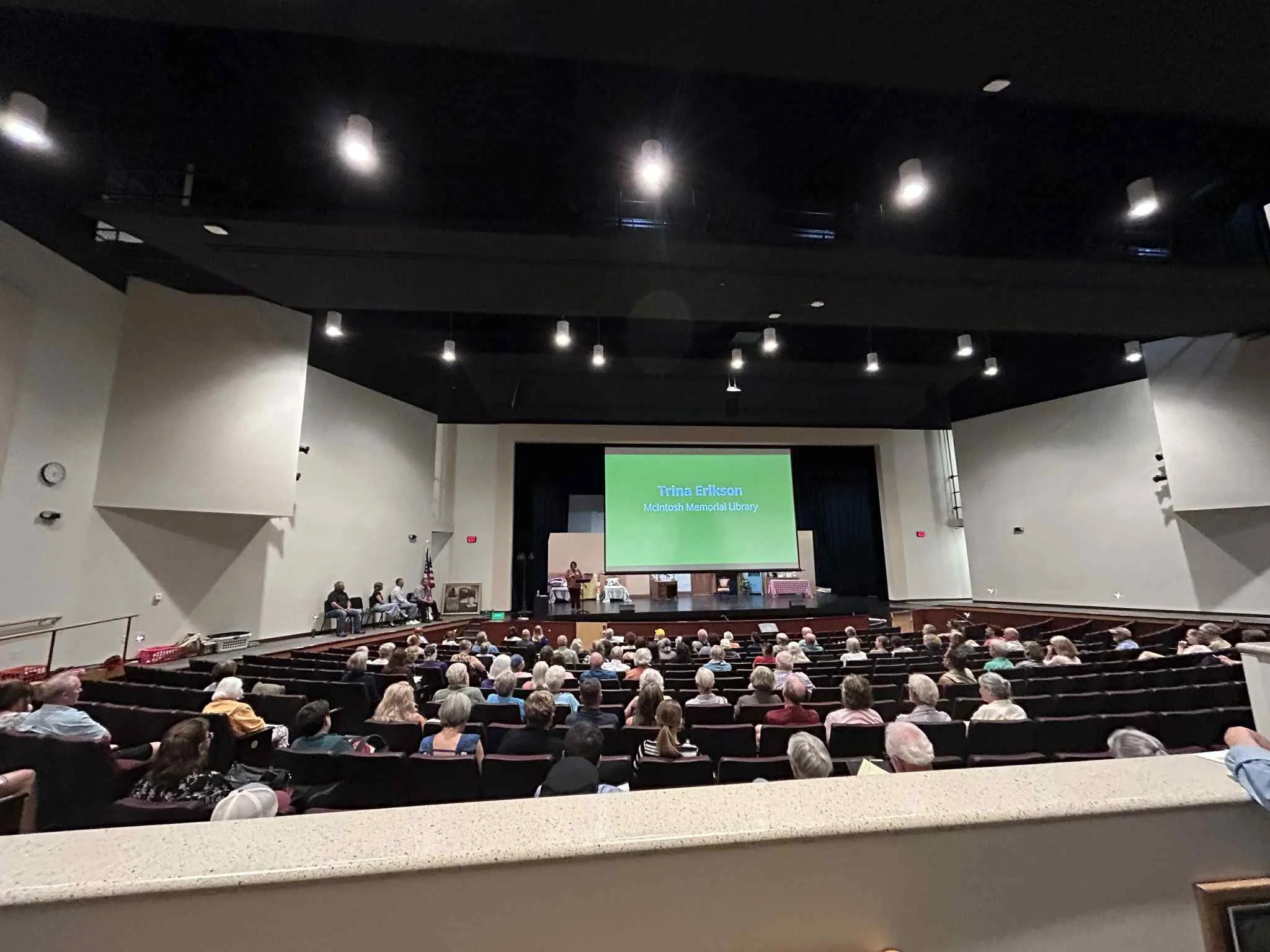Cuts with Consequences
Cuts with Consequences
Recently, approximately 150 people attended a nonpartisan presentation at the Westby Area Performance Arts Center, hosted by Kickapoo Conversations —a diverse group of local individuals who gather monthly to discuss ways they can support their community.
Tim Hundt of the Vernon Reporter warmly welcomed us, then shared a story about Vernon County’s Domestic Abuse Project. Three years ago, thanks to Susan Townsley (Stonehouse Counseling) and other local professionals, the county received a $200,000 grant from the federal government to launch the Help End Abuse Response Team (HEART) program. This program trained individuals to support victims and provide them with resources during these harrowing situations. The grant also enabled the county to train two sexual assault nurses (the first in our area) at the Hillsboro hospital and to start victim support groups, along with an intensive 26-week program for the abusers.
On April 22, the project directors were notified they would no longer receive this funding. With considerable care, our county was able to band together and use Ho Chunk funds to keep the program afloat until the end of this year.
Speaker after speaker discussed recent federal cuts in their fields of expertise, ranging from area schools to healthcare, from Couleecap to agriculture and conservation, from emergency management to local government and guardianship services.
Trina Erickson (Viroqua McIntosh Library) took me down memory lane with her presentation, emphasizing how McIntosh Library, one of eight in our county, relies on federal funding to keep staff educated and trained in technology. I have a special appreciation for local libraries. When I moved here from Milwaukee in 2000, I had no way to communicate with my family other than by snail mail. I became a familiar face at the (federally funded) Westby post office as well as at Westby’s Bekkum Memorial Library. I had no email address and no previous experience with computers. With the help of the library staff, I secured a Yahoo email address and was soon able to communicate with my daughter, friends, and family again. I didn’t have a computer at home; I didn’t even have electricity! But thanks to the library, I was no longer so isolated.
The Westby library and the post office were also instrumental in providing essential avenues of communication to get my business, Fitness Choices, up and running over twenty years ago, when I was living off-grid. I opened a PO box and used the library to make fliers, communicate with people interested in working out, and continually research information about starting a business.
Trina also shared with us her dream of building a Community Center in Viroqua. Her grant application for $250,000 was endorsed by Senator Tammy Baldwin and had made it through every committee where congressionally directed requests are carefully scrutinized. Finally, her dream seemed about to come true.
However, the President has cut all congressionally directed spending from the budget, resulting in the loss of the funds that would have completed this fundraising campaign. Now, instead of watching the hoped-for construction, Trina and her colleagues are back out there fundraising.
The Couleecap portion of the presentation reminded me of how long it took me to secure a loan to purchase my own home. Without the library’s initial help, I wouldn’t have had a business—and without Couleecap, I would still be trying to heat an uninsulated home with wood.
Later, a low-interest loan from Couleecap helped me get running water—no more taking showers at Super 8, where I taught water aerobics, or at Organic Valley, where I taught my fitness classes. Eventually, when I refinanced my home to replace the leaky roof, I was able to pay Couleecap back, and those funds returned to the program to help others.
Listening to Michele Engh of Immanuel Lutheran Church talk about the church’s food pantry gave us plenty to think about on how we can best help others. She explained that the church’s small pantry, restocked weekly, allows people to access food between their visits to Living Faith or other food pantries. Since March, they’ve needed to restock twice a day due to increased demand. Federal funding cuts are also impacting local pantries, making it difficult to keep fresh fruits, vegetables, milk, and other essential products available to those in need. For those who would like to help, monetary donations are most useful, as the pantries can purchase more food for less through the programs and networks they utilize.
Vernon County is still one of the poorest counties in Wisconsin. These and other federally funded programs aren’t handouts—they’re investments in the well-being of our communities. The cuts taking place this year are harmful to that well-being. Now’s the time to stand up, watch out for our neighbors, and help wherever we can.
